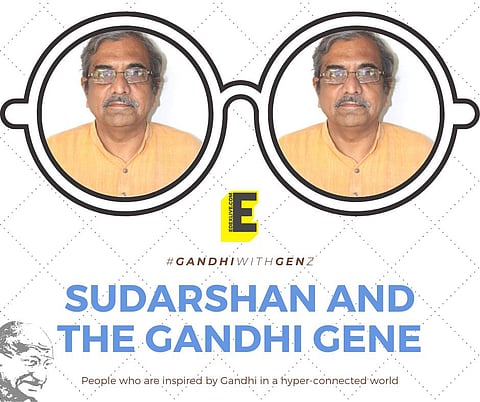

It is often the case that eminent people from the past take on mythical personas over time among the masses. Mahatma Gandhi was one such influential figure who is known around the world today. His teachings have become well-known quotes too. But how exactly should we perceive a man of incredible complexity and immense intellectual
How do you view Gandhi as a person of relevance today?
Gandhiji was essentially a practitioner. My take on him is that he is not simply meant for those who seek him out of intellectual curiosity alone. He is for earnest practice as well. I consider that as his central teaching as he said so himself that his life is his message. It is quite symbolic in that sense. If you look at him as a teacher of humanity, he had something very original to impart on society. He believed in the need to move towards a non-violent society.
What do you have to say about Gandhi's idea of educating the youth?
Gandhi's vision of educating and communicating with the masses was instrumental in the idea of development. He believed in disseminating the vision he had with the next generation. He wanted education to be framed in such a way that it informed the heart the importance of values, the hand the importance of skills and the head the importance of knowledge. It is only now that we have started providing skill-based education to young people. He had this vision a long time ago.
Why was Gandhi's vision of a society non-urban?
He had a very specific imagination of this society. He viewed it as a non-urban setting since truth and non-violence are the first casualties in urban societies. This is why he was so intent on the notion of gram swaraj. This was a parallel to the political decentralisation he believed in. For economic decentralisation, he wanted economic activities to be conducted at lower levels of society to reverse the urbanisation process.
What do you feel is the immediate need in society today?
The first real satyagraha is to break the unholy nexus between state and corporate businesses. In a representative democracy, the state oppresses its subjects while the economy manipulates. This combined effect has a stranglehold over all walks of society.
What changes, do you feel, are necessary in the political setup of the nation?
I think we have realised some of Gandhiji's ideals by incorporating a representative democracy setup in our country. But it would be even better to realise it through a participative democracy. The 73rd and 74th amendment of the Constitution has given valuable power to the gram panchayats but not autonomy. That would decentralise the political power exercised in the country today. Local production and consumption should be promoted. We have to establish a prosumerist society according to the term coined by Alvin Toffler, where a local group both produces and consumes its own goods and parts with the surplus.
